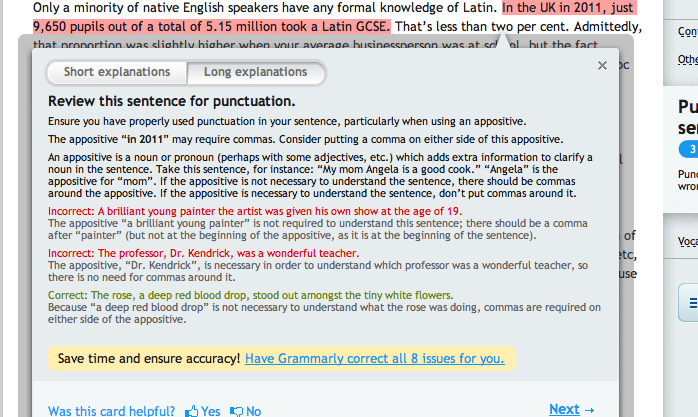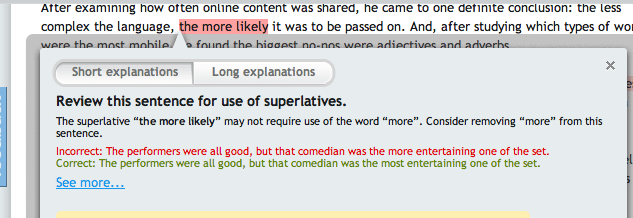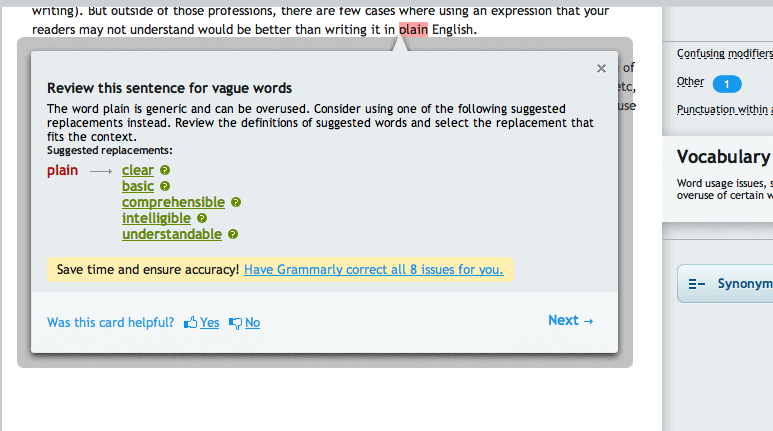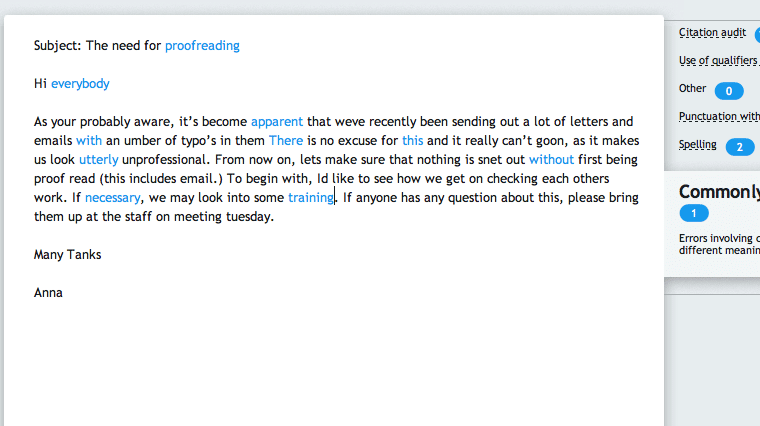At some point in our writing endeavors, we've all encountered the limitations of conventional grammar and spell checkers. Who hasn't stared in puzzlement at Microsoft Word's cryptic squiggly lines, wondering, "What do you want from me?" So far, no software has received much more acclaim than being deemed "better than nothing." The art of a well-trained human proofreader remains irreplaceable. But can Grammarly, boldly claiming to be the "world's most accurate grammar checker," succeed where others have faltered?
Grammarly targets a broad audience encompassing students, bloggers, writers, and professionals. It also offers distinct versions tailored to secondary school and higher education students. Going beyond the norm, it scrutinizes for "over 150 common and advanced grammar rules," checks punctuation, and addresses contextual spelling dilemmas like distinguishing between "to," "too," and "two." Remarkably, it even scans for plagiarism and assists in generating references when it detects copied content.
To access Grammarly's features, a subscription is required, with prices ranging from $19.95 for one month to $95.45 for a year. Nevertheless, free online resources such as a thesaurus, reference guide, and community-driven forum are available. Grammarly also operates as a Word plug-in, although we did not assess this aspect.
Grammarly doesn't automatically correct your text. Instead, it highlights potential errors, providing examples and exceptions within information boxes. Users have the discretion to accept or reject suggested changes. If you're still perplexed, you can seek answers on the forum through direct links from the error cards. Additionally, Grammarly generates a report that can be saved or printed. For a higher fee, you can enlist Grammarly's "professional proofreaders" to review and correct your document, though the idea of someone altering your text without your input might be disconcerting.
Comparing error cards to conventional word processors, Grammarly's explanations of grammar terms are more comprehensive. However, like other software, it occasionally misidentifies "errors," possibly due to the challenge of accounting for every English rule, stylistic choice, and potential construction. In some cases, users may be tempted to follow suggestions that are incorrect. For instance, final punctuation does not always belong outside a bracket at the end of a sentence, despite what Grammarly asserts.

Grammarly acknowledges the varying formality of different documents by allowing users to scan their work within different "paper types," including "academic," "business," and "technical." While the criteria for each type are not entirely clear, it tends to adopt a conservative approach, discouraging contractions and ending sentences with prepositions.

The software offers "word suggestions aimed at improving word choice and enhancing eloquence." However, users should approach these synonyms with caution, as they can sometimes result in awkward or overly complex phrasing. For instance, the phrase "give your writing color" could be transformed into "make your hand richness" based on Grammarly's suggestions. Additionally, Grammarly has a tendency to object to plain English, considering words like "plain" too generic.

Testing Grammarly's "contextual spelling checker" with a proofreading challenge revealed its imperfections. While it correctly identified "their" instead of "there" and an unnecessary space in "with out," it missed more subtle errors like "your" for "you're," "Id" for "I'd," and "tanks" for "thanks."

In conclusion, Grammarly's active user engagement is a positive aspect, potentially aiding in the improvement of grammar skills. However, it falls short of being the flawless quick-fix some may desire. Blindly accepting its suggestions won't guarantee flawless documents. Moreover, free alternatives such as PaperRater and LanguageTool are available, though untested as of now.
Grammarly is a useful tool, but it cannot replace the discerning eye of a human proofreader. If you choose to use it, be prepared to exercise your judgment and question its recommendations when necessary.
